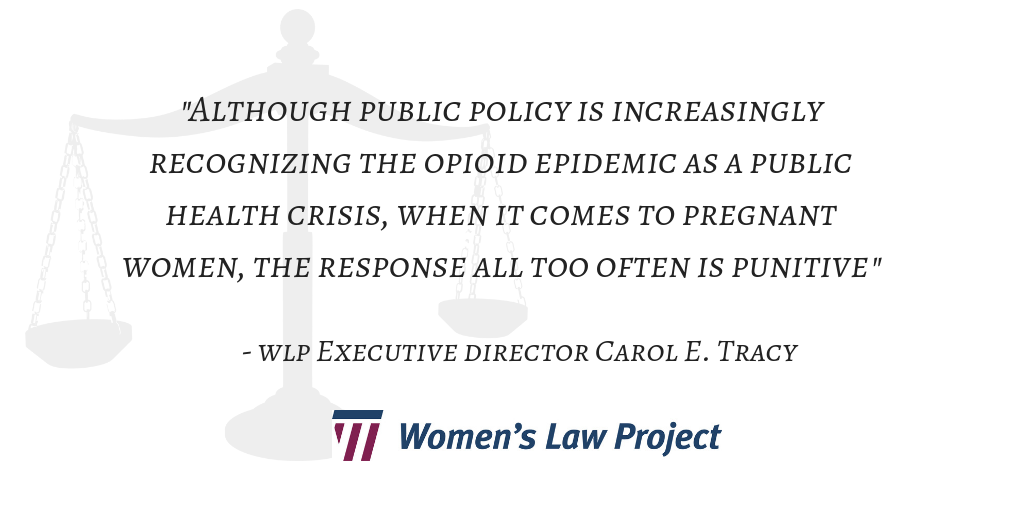
Earlier this year, attorneys at the Women’s Law Project, law professor David S. Cohen, along with Robert Lugg of Lugg & Lugg in Lock Haven successfully petitioned the Pennsylvania Supreme Court to review a decision from the Superior Court that held that a woman can be charged with civil child abuse for using drugs when pregnant.
The case is known as In re: LJB.
Today, in a 5-2 opinion, the Pennsylvania Supreme Court ruled that alleged behavior while pregnant does not constitute child abuse under Pennsylvania’s Child Protective Services Law (CPSL), reversing the Superior Court’s decision.
“This ruling is a resounding victory for all pregnant people,” says attorney David S. Cohen, Professor of Law at the Thomas R. Kline School of Law at Drexel University and member of the WLP Board of Directors.
“As we argued, allowing people to be classified as child abusers under state law in response to alleged behavior while pregnant contradicts the clear legislative intent of the law. It also would set a dangerous precedent wherein nearly any behavior while pregnant, from eating blue cheese to undergoing chemotherapy, could be considered child abuse. We thank the court for reviewing the Superior Court’s ruling and protecting the rights of pregnant people.”
From the majority ruling authored by Justice Donohue :
We address here … whether a woman’s use of opioids while pregnant, which results in a child born suffering from neonatal abstinence syndrome (“NAS”), constitutes “child abuse” as defined. We conclude, based on the relevant statutory language, that a mother cannot be found to be a perpetrator of child abuse against her newly born child for drug use while pregnant. We therefore reverse the decision of the Superior Court and remand the matter for reinstatement of the trial court’s order…
The Superior Court thus created a statutory relationship between a pregnant woman and a fetus that the CPSL does not recognize … Moreover, once labeled as a perpetrator of child abuse, the likelihood that a new mother will be able to assimilate into the workplace and participate in activities of the child’s life would be diminished. This would contravene the laudatory goal of preserving family unity and a supportive environment for the child.
For more background and case documents, go here.
“We’ve worked on issues related to punishing pregnant women for decades,” says WLP Executive Director Carol E. Tracy. “Now, we’re seeing the opioid epidemic collide with escalated attacks on reproductive rights in ways that violate the rights of pregnant people. Although public policy is increasingly recognizing the opioid epidemic as a public health crisis, when it comes to pregnant women, the response all too often is punitive.”
The Women’s Law Project is a public interest law center in Pennsylvania devoted to advancing the rights of women and girls.
Sign up for WLP’s Action Alerts here. Follow us on twitter and like us on Facebook.
We are a non-profit organization. Please consider supporting equal rights for women and girls by making a one-time donation or scheduling a monthly contribution.


